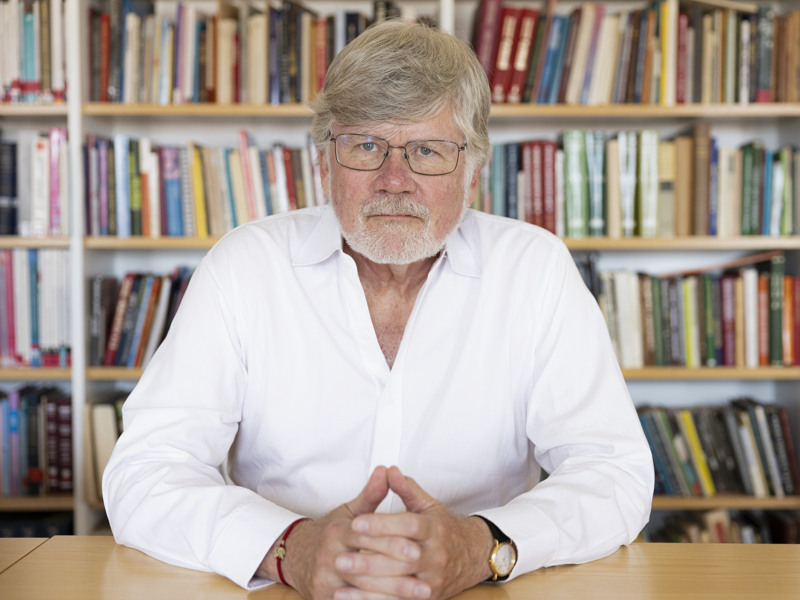Resilient Voices: Women Educators in Conflict Zones and Their Role in Rebuilding Societies
Dr Iryna Halasa, Associate Professor at West Ukrainian National University and British Academy Fellow and visiting scholar at King’s College London
Time: 27th May, 15:15-17:00
Place: Seminar room 9th floor, Niagara or online https://mau-se.zoom.us/j/64991963211

Bio
Iryna Halasa is an Associate Professor at West Ukrainian National University. She is currently a British Academy Fellow and visiting scholar at King’s College London, where she is working on her project “Researcher in Conflict: Maintaining Neutrality Amid Personal and National Crisis”. Her research examines how war impacts academic positionality, neutrality, and voice, particularly in the fields of linguistics and communication studies. Dr Halasa earned her PhD in Philology from Ivan Franko National University of L’viv in 2011. She is also leading the project “Resilient Voices: Women Educators in Conflict Zones and Their Role in Rebuilding Societies”, which explores the experiences of female educators in war-affected regions, focusing on education, gender, sociolinguistics, and post-conflict reconstruction. She is the author of the 2025 book Making War Visible: Language as a Weapon During Russia’s Full-Scale Invasion of Ukraine, which analyzes how language is used strategically in wartime discourse. Her academic experience is supported by numerous international fellowships and internships in the USA, the UK, Sweden, Hungary, Poland, and other countries.
Abstract
Education is a fundamental pillar of societal resilience and recovery, particularly in conflict-affected regions where the destruction of infrastructure, forced displacement, and psychological trauma disrupt learning. In these crises, women educators play a crucial yet often unrecognized role in maintaining access to education, fostering community stability, and shaping the post-conflict reconstruction process. Our project seeks to explore and document the contributions of Ukrainian female teachers during the full-scale invasion by Russia, highlighting their resilience, challenges, and impact on rebuilding societies through education. The problem our research addresses is the position of Ukrainian women educators and their vital role in sustaining education, supporting students, and fostering societal resilience amid military, economic, and personal crises. Armed conflicts affect education systems, leaving teachers – especially women – to navigate extreme challenges such as displacement, trauma, lack of resources, and threats to personal and family safety, all while maintaining their professional and caregiving responsibilities
This project aims to uncover how female teachers navigate the immense challenges of teaching in Ukraine during wartime, shedding light on the strategies they employ to sustain education and provide stability in times of upheaval. By examining their approaches – both formal and informal – we seek to understand how they adapt curricula, foster resilience, and offer crucial emotional support to students facing war trauma. Beyond immediate survival, the project explores how women’s dedication lays the groundwork for healing future generations and shapes post-war societies through education and mentorship.





 Book series:
Book series: Håvard Bækken
Håvard Bækken  Lika Kobeshavidze
Lika Kobeshavidze

 Dr. Leila Wilmers is a Regional Scholar at Cornell University’s Einaudi Center for International Studies and teaches in Cornell’s Department of Sociology. She has a background in peacebuilding work in the non-profit sector and holds a PhD in human geography from Loughborough University, UK. Her research concerns nationalism in the contemporary world, and particularly experiences of nationhood and the processes and conditions of bottom-up engagement with nationalist ideology and politics. Her research and teaching crosses the disciplines of sociology and human geography and her regional expertise is in the post-Soviet space. Her work has been published in the journals Europe-Asia Studies, Ethnic and Racial Studies, Nationalities Papers, and Ethnicities.
Dr. Leila Wilmers is a Regional Scholar at Cornell University’s Einaudi Center for International Studies and teaches in Cornell’s Department of Sociology. She has a background in peacebuilding work in the non-profit sector and holds a PhD in human geography from Loughborough University, UK. Her research concerns nationalism in the contemporary world, and particularly experiences of nationhood and the processes and conditions of bottom-up engagement with nationalist ideology and politics. Her research and teaching crosses the disciplines of sociology and human geography and her regional expertise is in the post-Soviet space. Her work has been published in the journals Europe-Asia Studies, Ethnic and Racial Studies, Nationalities Papers, and Ethnicities. Prof. Oliver Reisner, Ilia State University, Tbilisi, visiting researcher at RUCARR, will give two seminars. Welcome to join us on campus or Zoom:
Prof. Oliver Reisner, Ilia State University, Tbilisi, visiting researcher at RUCARR, will give two seminars. Welcome to join us on campus or Zoom: